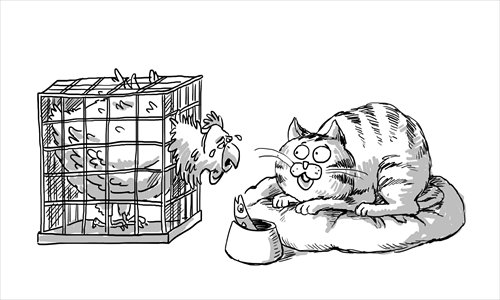Horsemeat ban more about taboo than health

The European horsemeat scandal has been escalating. Now the juicy meatballs of Ikea, Taco Bell's ground beef, and Nestle's pasta meals have all became casualties. They were pulled from the restaurants and the shelves after suppliers in various European countries were found to have mixed horsemeat into their beef products.
The companies also assured Americans that their products in the US are from different suppliers which are "clean."
In China, a general distrust of food manufacturers means that people can rarely be surprised by ingredients that don't match food labels. But the Europeans and the Americans tend to follow food labels religiously to calculate the nutrition intake and avoid allergies. So when what is said to be pure beef is indeed not that pure, it is a serious violation.
But it's safe to bet if the additional meat involved was chicken or duck, there probably wouldn't be such a furor. Behind the food safety horror, the horsemeat nightmare has a lot to do with cultural tradition.
Eating horsemeat has long been a taboo in some Western countries. On the website of the Humane Society, horses are described as "a symbol of grace and beauty," and the No.1 reason listed against horse slaughter is that "horses are our trusted companions and have never been raised for human consumption in America."
I have never owned a fur coat. I rely mainly on pork for protein. And I have no major problem with animal rights. But what often makes me scratch my head is why some animals are considered to have the right to live a worry-free life until they drop dead naturally and others only have the right to be slaughtered, even humanely.
Endangered species aside, the criteria of life and death for tamed animals seem to be mainly their looks and their personalities.
Those gifted with expressive eyes, soft fur and a friendly approach are often favored and protected. Some of them even have their own beauty pageants and have the chance to win big stash of cash, which they can chew in the form of toys.
There are laws prohibiting animal cruelty in many countries. But sorry, snakes, such laws are usually applied only to the beautiful friends of humans, such as dogs, cats, and of course, horses.
All of this may sound reasonable in our world, which is more or less operated on the same rules. But it may make little sense in the animal world.
A dog with braided fur, dyed purple tail and clad in an embroidery cotton jacket may be able to get a lot of admiration from you and me. But he may look just like a meal in the eyes of a tiger, a murderer in the eyes of a bird and an idiot in the eyes of other dogs.
By enforcing animal rights, we may just be forcing human standards into the animal world. And mind you, these are not universal standards even in the human world. Take horses and cattle. The kudos that the former enjoy in Western countries for being loyal creatures, hardworking and as religious symbols, the latter enjoy in some other parts of the world for the same reason.
In China, cattle are highly respected. Even famous writer Lu Xun borrowed the name of the animal in a poem to analogize his own characteristics.
Yet, outside of Hinduism and vegetarian movements, the mainstream isn't calling on people to ban eating beef. People in the East have rarely been initiators of animal protection, especially when it means it will reduce the supply of food. And how would Westerners survive without burger and steak?
In recent years, people in the East renewed the idea of animal rights, sometimes picking up on older traditions such as Buddhist vegetarianism or the animal protection laws once issued by the Japanese shogunate.
But the main beneficiaries are only dogs and cats, and the idea is promoted by people who have the means to raise these four-legged creatures as children.
So let's face it. No matter how much we'd like to think our animal protection efforts are guided by sincere humane and egalitarian beliefs, they still often reflect the inequality of the ecosystem where humans are the decision-makers.
There are also plenty of echoes of the human world where the rich have louder voice than the poor.
Without acknowledging this, it might be more honest to allow the flavor or cost of the meat to determine its popularity.
The author is a New York-based journalist. rong_xiaoqing@hotmail.com